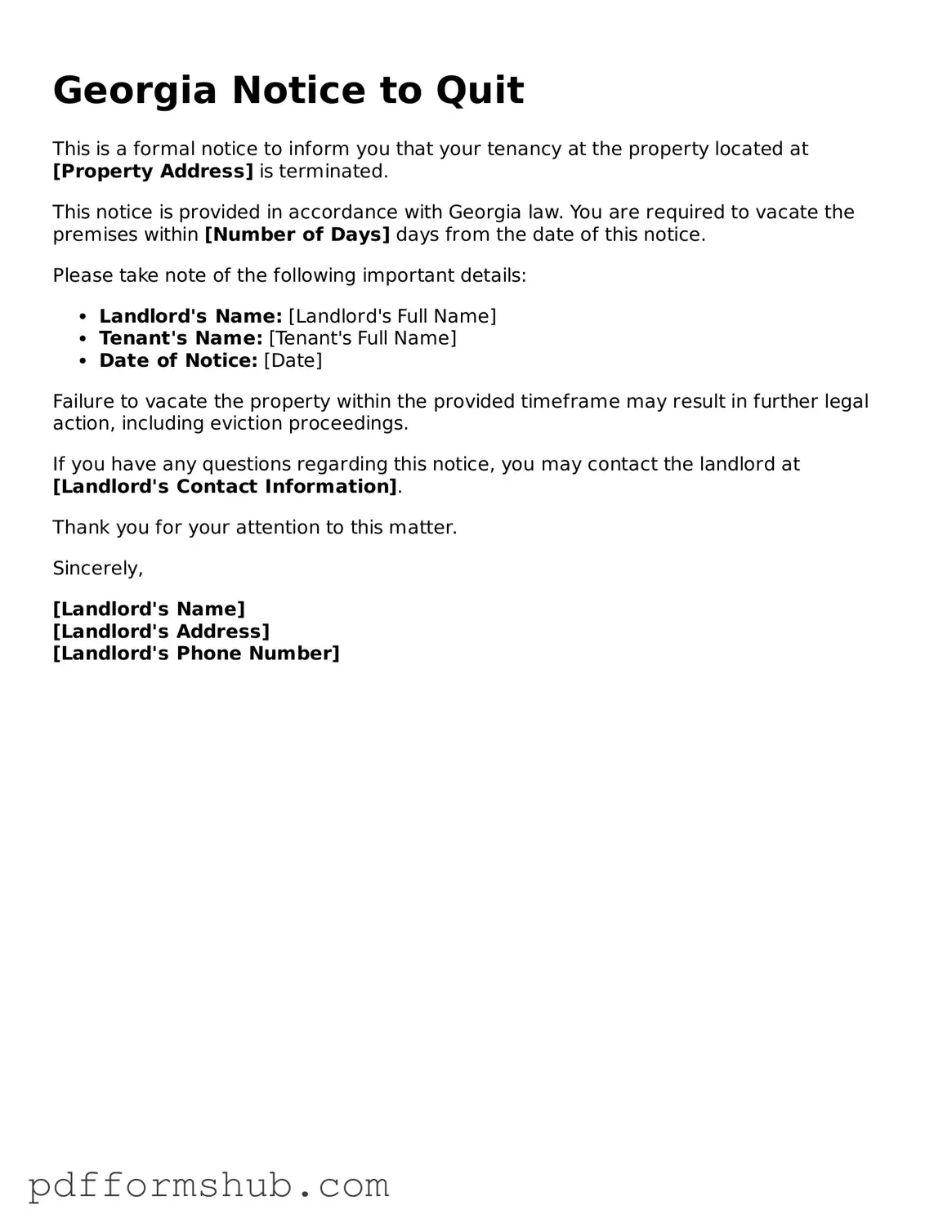Attorney-Verified Notice to Quit Form for Georgia State
The Georgia Notice to Quit form is a legal document that landlords use to notify tenants of their intention to terminate a lease agreement. This form is essential in initiating the eviction process when a tenant fails to comply with rental terms. Understanding how to properly fill out this form is crucial for both landlords and tenants.
To ensure you complete the form correctly, click the button below.
Customize Form

Attorney-Verified Notice to Quit Form for Georgia State
Customize Form

Customize Form
or
Free PDF Form
Short deadline? Complete this form now
Complete Notice to Quit online without printing hassles.